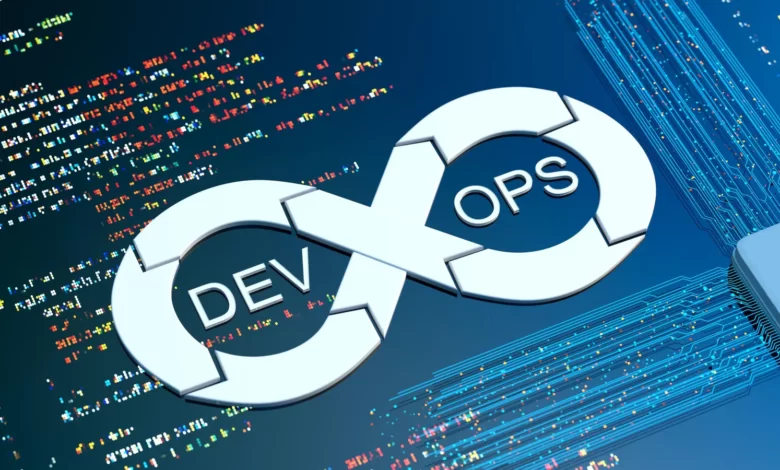Everything you need to know about DevOps in 2024

As we step into the dynamic landscape of 2024, DevOps continues to evolve, shaping how organizations build, deploy, and manage software. In this era of accelerated digital transformation, understanding DevOps is not merely an advantage; it’s a necessity. From cutting-edge technologies to transformative methodologies, this blog is your comprehensive guide to everything you need to know about DevOps in 2024. Join us on a journey through the latest trends, best practices, and emerging strategies that redefine the future of software development and IT operations. Whether you’re a seasoned DevOps professional or just beginning your journey, this exploration will equip you with insights and knowledge crucial for navigating the ever-changing landscape of DevOps in the present year.
A DevOps course equips individuals with the essential skills and knowledge to excel in the IT industry. It provides hands-on experience with DevOps tools and methodologies, making candidates proficient in automation, collaboration, and continuous integration. This expertise and proficiency is highly valued by organizations seeking to enhance software development efficiency. A DevOps certification validates one’s capabilities and opens doors to diverse roles such as DevOps engineer or specialist. The course’s practical insights enable professionals to navigate the evolving IT landscape, making them indispensable assets for companies adopting agile practices and accelerating their digital transformation efforts.
What is DevOps?
DevOps, abbreviation for Development and Operations, is a collaborative approach in software development and IT operations to enhance communication, efficiency, and collaboration between development teams (creating software) and operations teams (responsible for deploying and maintaining software). It emphasizes the automation of processes, continuous integration, and continuous delivery to achieve faster development cycles and more reliable software releases. DevOps also fosters a culture of collaboration, breaking down traditional silos, and encourages the adoption of tools and practices that streamline the entire software development lifecycle. By aligning development and operations objectives, DevOps enables organizations to respond swiftly to market changes, deliver high-quality software, and improve overall business agility.
DevOps lifecycle
The DevOps Lifecycle is a methodology software development teams utilise to expedite and streamline bringing products to market. This approach entails managing the entire software lifecycle, from development through release, with a key emphasis on fostering collaboration between developers and IT operations professionals. The DevOps strategy champions innovative thinking, velocity, and adaptability in creating, verifying, deploying, utilizing, and evolving software applications. It promotes a culture of innovation, evaluation, and continual enhancement to drive advancements in goods, services, and operations.
However, the successful adoption of DevOps requires a comprehensive understanding of the various stages within the DevSecOps lifecycle. Engineers must be thoroughly aware of each phase to achieve swift and efficient results, as navigating the entire development process can prove challenging and time-consuming without this knowledge.
Let’s delve into the intricacies of the DevOps lifecycle, examining each phase:
Plan: Professionals discern commercial needs and gather end-user opinions, creating a project plan to optimize business impact.
Code: Developers employ DevOps tools like Git to streamline code development, ensuring safety and adherence to coding standards.
Build: Upon completing coding tasks, tools such as Maven and Gradle are used to submit code to a common repository.
Test: The product undergoes various screenings (user acceptability, safety, integration, speed, etc.) on the test platform, employing tools like JUnit and Selenium.
Release: Once the build meets organizational standards, it is ready for deployment. DevOps prepares updates or multiple versions for production.
Deploy: Infrastructure-as-Code facilitates operational infrastructure creation and build deployment through DevOps tools.
Operate: The version is now user-ready. Management, using tools like Chef, handles server configuration and deployment.
Monitor: DevOps workflow is observed based on user behavior and application efficiency data, identifying production and operations performance bottlenecks.
Importance of DevOps
DevOps is paramount in modern software development and IT operations, primarily due to its transformative impact on efficiency, collaboration, and product delivery. DevOps accelerates the software development lifecycle by fostering a collaborative culture between operations and development teams, ensuring faster and more reliable releases. Its emphasis on automation reduces manual errors, enhances consistency, and streamlines processes from planning and coding to testing and deployment.
DevOps also promotes continuous integration and delivery, allowing quicker adaptation to changing business requirements. The iterative nature of DevOps encourages a rapid feedback loop, enabling teams to identify and rectify issues promptly. Adopting DevOps leads to increased agility, improved time-to-market, and heightened responsiveness to customer needs, making it a crucial methodology for organizations seeking to thrive in today’s fast-paced and competitive technological landscape.
How does DevOps work?
DevOps operates as a collaborative and iterative approach to software development and IT operations, streamlining the entire software lifecycle. It begins with planning, where teams define objectives and gather user input. In the coding phase, developers use DevOps tools to create and manage code efficiently. The build stage involves compiling and submitting the code to a shared repository, followed by thorough testing using tools like JUnit and Selenium.
Once the build passes tests, it moves to the release phase, preparing for deployment. Infrastructure-as-Code facilitates deployment in the deploy phase, and operations teams configure and manage servers. The system is then monitored, collecting user behavior and application performance data. Continuous feedback from monitoring allows for iterative improvements, creating a loop that enhances collaboration, accelerates development, and ensures a more reliable and efficient software delivery process.
Conclusion
In the dynamic landscape 2024, DevOps emerges as the linchpin for streamlined software development. Understanding its evolving trends, methodologies, and tools becomes imperative for staying competitive in the IT industry. A DevOps course equips professionals with essential skills and positions them as invaluable assets in the job market. As organizations increasingly embrace agile practices, automation, and continuous integration, individuals well-versed in DevOps are poised to secure lucrative roles. By staying informed and investing in DevOps education, professionals can navigate the tech landscape confidently, driving innovation, efficiency, and success in the rapidly advancing world of IT.





